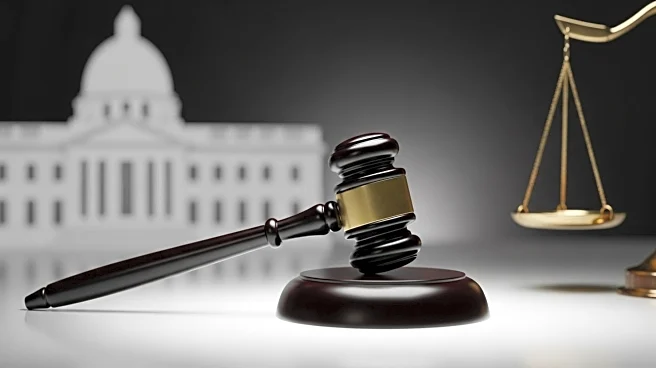What's Happening?
D.C. Mayor Muriel E. Bowser is under scrutiny for her approach to President Trump's federal intervention in Washington, D.C. Critics, including local lawmakers and organizations, accuse Bowser of undermining the city's autonomy by coordinating with federal law enforcement. This criticism intensified after Bowser ordered local police to work indefinitely with federal officers. Despite the backlash, Bowser remains confident in her strategy, which she believes helped prevent Congress from extending Trump's emergency control over the D.C. police. The situation remains tense as the expiration of Trump's emergency order approaches, with concerns about ongoing federal influence in the city.
Why It's Important?
The controversy surrounding Bowser's actions highlights the delicate balance between local governance and federal authority, especially in a city like Washington, D.C., where Congress has significant control over its budget and laws. Bowser's cooperation with Trump poses political risks in a predominantly Democratic city, potentially affecting her future electoral prospects. The situation also raises broader questions about the impact of federal interventions on local autonomy and civil liberties, with implications for other cities facing similar challenges.
What's Next?
As Trump's emergency control of the D.C. police is set to expire, the city may see changes in law enforcement dynamics. Bowser's critics continue to express concerns about the erosion of self-government, urging vigilance among residents. The mayor's future political ambitions could be influenced by public perception of her handling of the situation. Meanwhile, federal actions, such as roadside checkpoints and ICE raids, may persist, affecting the city's social and political landscape.










